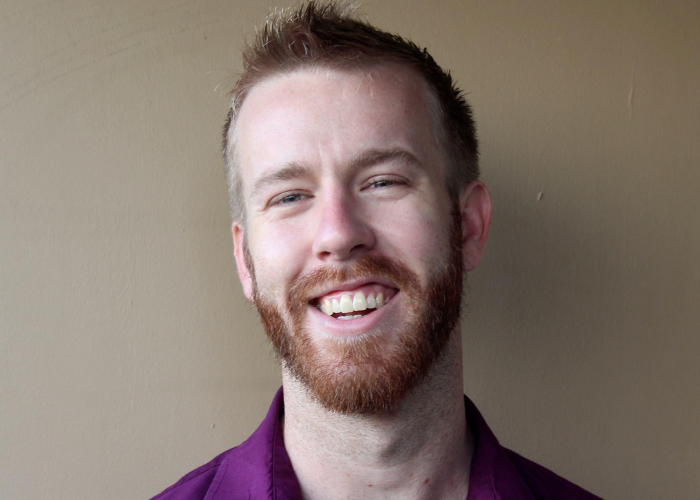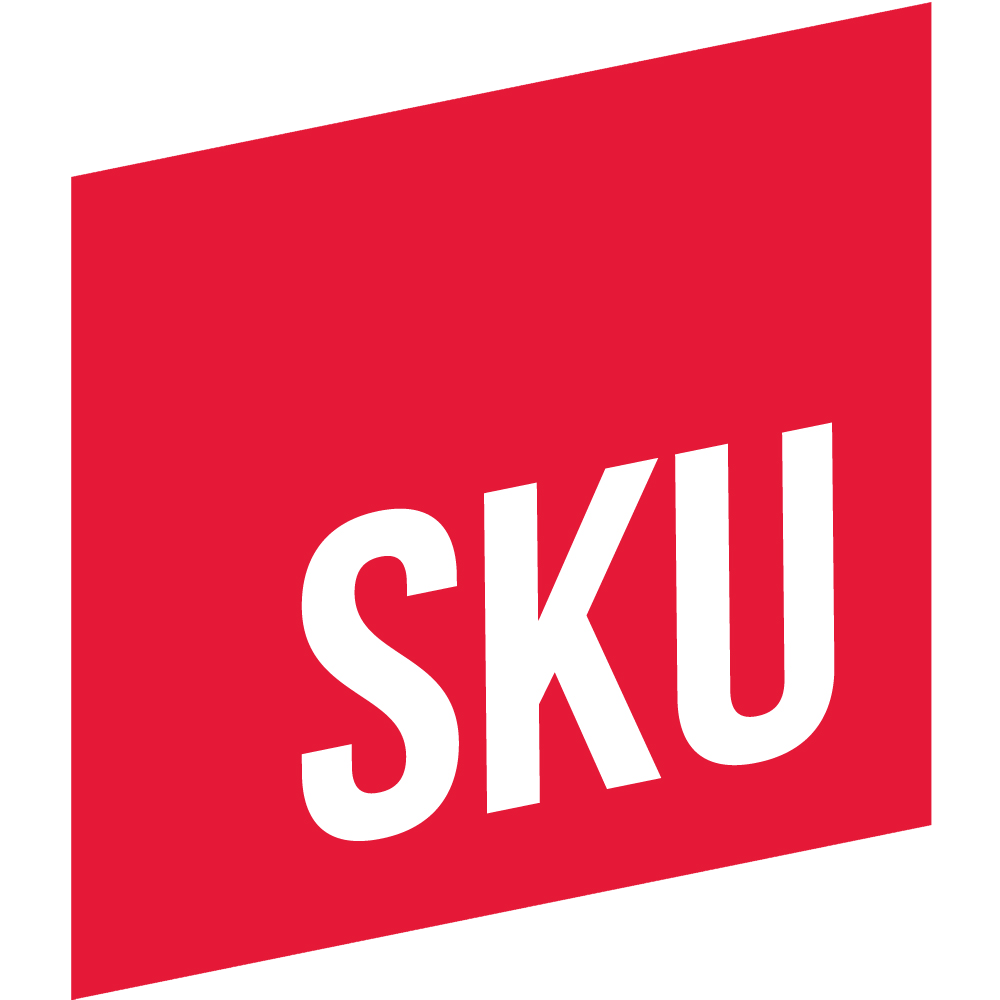
As a consumer products accelerator, SKU is at the center of the Austin CPG community. Because of that, we strive to lead the way by focusing on practices and products that will lead us into a better future in the face of a constantly changing world. Through The Future of Food @ SXSW, we want to bring together the agriculture and technology aspects of the consumer-products world with exciting food and beverage innovations for an educational, enjoyable and exciting experience for attendees at SXSW. I’m excited to be speaking on a panel about the State of Future FoodTech, AgTech & CPG Innovations from 2:10 to 3:10 CT on Sunday, March 21st.
The Future of Food @ SXSW is the brainchild of Robert Nathan Allen (RNA), Founder/Director of Little Herds and a board member of the North American Coalition for Insect Agriculture. I spent some time with RNA to learn more about the journey that led him to become an advocate for sustainable agriculture.
Kirstin: You are very passionate about the fragility of the world’s food supply. How did you first become interested?
RNA: Funny enough, I was in the service industry, managing a bar in Austin in 2012. My mother sent me a video about eating insects, and I was so intrigued I fell down the rabbit hole. I spent the next few years starting Little Herds to be a resource for the public – from educators to entrepreneurs, investors to policy makers.
Growing the nascent Insect Agriculture sector with Little Herds led me to learn more about the lack of sustainability in our food system, supply chain fragility, raw materials production, product manufacturing, consumer marketing and more. I worked with a variety of startups, including companies that continue to grow the BugAg space like Aspire Food Group.
This interest was pushed into high gear after the pandemic hit and SXSW was cancelled. I saw first hand how many people were thrown into food insecurity for the first time. If I still had been a bartender I would have been in the same situation. I had friends who were out of work and out of money and just needed a little help to get going again.
Working with amazing groups like The Cook’s Nook and Good Work Austin has allowed Little Herds to reimagine our role in our local and global community. We joke that our mission has transformed from “helping people eat bugs” to just “helping people eat.”
Kirstin: What do you think are the biggest challenges for food and agricultural production?
Food Equity and Food Justice
RNA: I think the biggest issues are entrenched systems and legacy policies that disincentivize companies to evolve. We need economic incentives for the food industry to modernize and adapt to climate resilience in the same way that renewable energy has benefitted from large scale economic subsidies. That helps get the sector and infrastructure to the point that it becomes more profitable than old models.
I’m a excited to see what this new administration can do to open up more resources for the companies and communities to bring in meaningful systemic change. That means addressing the problems inherent in our food system with clear eyes – a food culture that is steeped in and that has grown directly from racism, Colonialism, othering of different cultures and xenophobia. We need to move past food equality and even past food equity to get to food justice.
True-cost accounting is the innovation that most excites me in this regard. If companies can no longer artificially lower their costs by offloading health and environmental costs onto the public, the taxpayer and the environment, then the companies that are doing things more sustainably and more efficiently will be rewarded.
Kirstin: How did the Future of Food come about?
RNA: It began in 2019 when Little Herds was invited to join the Google ReFresh Food & Tech event at SXSW You can see how much fun we had feeding people bugs and using bugs to upcycle food waste in real time, in our recap video.
In 2020 we decided to make the idea back bigger and better and teamed up with Food Tank, ReFED, SKU, Enviroflight, Big Wheelbarrow and more to put it together The Future of Food @ SXSW (2020, in person). The Kroger Co. Zero Hunger | Zero Waste Foundation resonated with our core idea of having a big enough tent to bring in all of the innovations and ideas around the future of food in one space, and became our presenting sponsor.
Of course we all know what happened next…after Expo West cancelled, we postponed our event and the next day SXSW cancelled all together. Our core partners agreed to bring the event back in some way and that led us to the digital reboot this year.
Back and Better than Ever
In many ways, this year’s SXSW is now more accessible than ever before because of the digital nature, and our goal has been to amplify that and make the majority of our content free and available to the public; with programming led by nonprofits; with a portion of all sponsor dollars and attendee add-ons (like our Future Food CPG Box from Green Cart / Pantry) benefitting local food access initiatives helping kids, seniors, and service industry folks who are still impacted by the pandemic and SXSW not being in person. Many of the service industry, hospitality industry and creative industry folks won’t be benefiting from a virtual event this year, so we wanted to make sure the event can give back in some clear and actionable way.

Kirstin: What makes the event unique?
RNA: I think the collection of voices we’ve brought together is a big part of what sets this event apart. With over 10 core nonprofit partners and dozens of industry leaders, founders, executives and investors, we have more tahn 75 speakers and over 900 minutes of content. It’s all available for free to the public to learn and engage.
Additionally, we’ve put together what is arguably one of the most diverse speaker lineups ever for a SXSW food focused event, from their race to their gender identity to their age. THIS is the future of food; it is diverse, and more healthy and resilient because of its diversity, just like natural ecosystems, soil and our own diets.
Kirstin: What are you most excited about when it comes to new developments/innovations?
A Cleaner, Safer Mango
RNA: Full-cost accounting is something I am very excited about, as well as technology that allows us to move toward a nutrient-valuing economy. In this economy, the value of raw materials like food can be better quantified based on the actual cost of resource inputs, and the nutritional density and quality of the products.
For instance, I can see a world in the not too distant future where a mango that is grown with sustainable practices and without toxic chemicals can be appropriately valued above a mango grown with synthetic fertilizers and pesticides. That’s not just because the consumer wants cleaner safer food, but because the consumer can literally see a that the nutrients in the first one are better for their body, and the practices behind it better for the planet. Distributed ledgers for supply chains (non-cryptocurrency blockchain) are a big part of this transparency /verifiability paradigm shift that is happening right now, from the startup space to Frank Yiannas at the FDA.
Kirstin: Who are the biggest advocates right now when it comes to creating solutions?
RNA: I’m a huge fan of Danielle Nierenberg and Food Tank because they talk to EVERYBODY along the food spectrum – from a DOW executive to a regenerative agriculture smallholder farm. They do such an amazing job of curating conversations that are hyper relevant is inspiring. Food Tank is a big part of how and why we decided to first organize The Future of Food @ SXSW back in mid 2019.
Kirstin: What do you want people to walk away with from this 4-day event?
RNA: The goal is to inspire people to do more, get involved, become more active in their community, find the right investor for their startup, and learn something new. The goal is to share knowledge and information and increase the connectivity across all of the sectors that “future of food” encompasses.
Find a local nonprofit, a food pantry or another community based group helping people get food, and donate your time, your treasure, your expertise or your voice. Do good work with a nonprofit and it will feed your soul, inspire your heart and connect you with other people who care about the community and the planet.
Read More SKU Ross Report Posts


